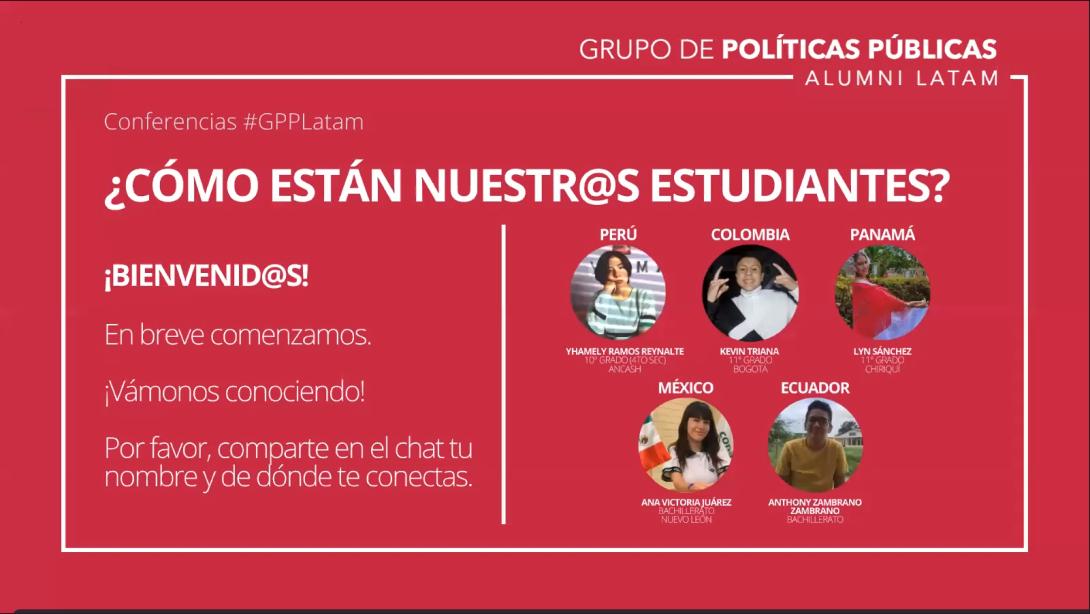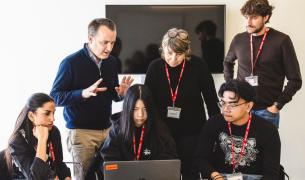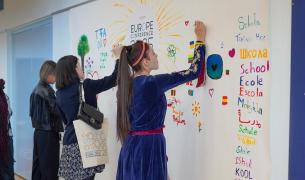Virtual Education Is Part of Everyday Life

In June a group of alumni of Teach For All network partners who are a part of the Latin American Public Policy Group (Grupo de Políticas Públicas en Latinoamérica) convened two calls to bring together students from different countries across the region and give them a space to share how they were feeling in light of the COVID-19 pandemic and school closures. The group held two calls and had more than 140 attendees attend. Kevín Triana, a Grade 11 student at Colegio la Giralda in Bogotá, Colombia, shared the following reflection on his experience participating as a student panelist on the first call.
It is important to note that education is currently one of the areas most affected by the pandemic, with a series of pre-existing limitations that have not been addressed in a timely manner, such as the development of ICT (Information and Communication Technologies) and the implementation of digital strategies for learning.
As a result, the education system is not functioning well. This translates into poor preparation of both students and teachers in the use of platforms as well as a deterioration in how information is conveyed, which means that the learning process does not match what was being previously done in person. Taking this into account, it is worth asking: Is virtual education as distant as it was thought? Should education worldwide begin to change and leave traditional methods behind?
Regarding the call hosted by the Latin American Public Policy Group, I want to emphasize that it was one of the best spaces to communicate and empathize with people who may be in a similar or totally different situation, and to hear different points of view in the pursuit of common good and young students’ engagement.
I believe that these spaces are crucial for promoting dialogue in a society, since they are evidence of innovation and our changing times. The call was proof of this, as we, young people, were the main actors and speakers, and we shared our opinions regarding the future of our institutions and educational systems. It was also an initiative that generated awareness of how we should carry out this educational process in times of a pandemic, always aiming for something better.
I would like to add that the call was a wonderful experience in which I felt quite comfortable and fascinated, listening to how people from different countries are facing or dealing with this situation, each intervention making me reflect on what a stable virtual education would be like, or if we will ever get there.
I was very proud to represent my country, as I was expressing the voices and the experiences of many students at the national level. It was an honor to represent the work and effort of so many people.
In light of all this, I can say that education is not in its best moment, but with the passing of time it will develop and improve. This should not only be the result of the work of teachers, but a team effort in which students understand and are involved in the key elements, factors, and decisions.
Read this story in Spanish.


